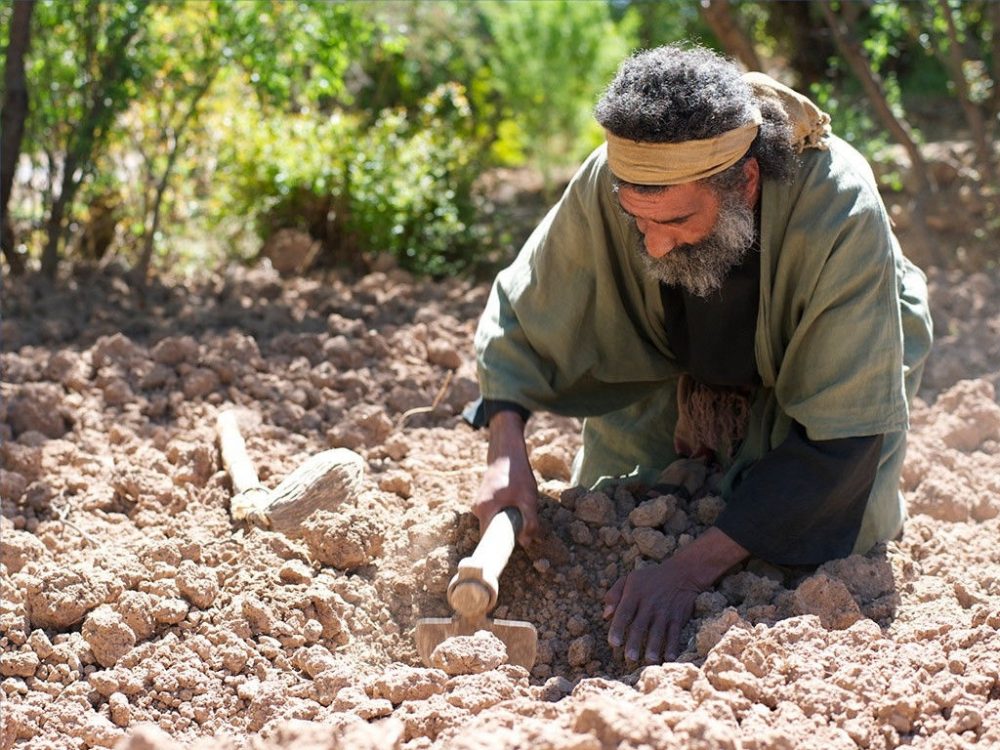Fr Paolo Consonni, MCCJ
O Clarim 17 Sun OT Year A
“The kingdom of heaven is like a treasure buried in a field, which a person finds and hides again, and out of joy goes and sells all that he has and buys that field.
Again, the kingdom of heaven is like a merchant searching for fine pearls. When he finds a pearl of great price, he goes and sells all that he has and buys it.” (Mt 13:44-46)
Joy is undoubtedly part of the feeling of “falling in love.” But older couples (and marriage counselors as well) know very well that marriage cannot rely on feelings alone. Someone even said that the feeling of “falling in love” is not even “real love,” because it is so powerful and compelling that it does not require many well-thought out choices. When you fall in love, you just “follow the heart”: human freedom and rationality are not totally engaged. The center of the relationship is the feeling itself, not even the needs of the person you fall in love with.
This blissful feeling is inevitably going to fade, sooner or later, and when it happens, even the best marriage enters into crisis. But at this point, if the opportunity is given, true love can emerge. True love is based on the reality of one’s spouse, and not on his/her idealization. It manifests through concrete actions and choices, sometimes painful, where all our rational and affective faculties are fully engaged.
The joy born of true love can withstand the challenges coming from life and from human weakness. This joy is oftentimes a treasure that we discover long after the blissfulness of “falling in love” is gone. The same is also true in our religious or professional life.
In this Sunday’s Gospel (Mt 13:44-52), Jesus compares the Kingdom of God with a treasure buried in the field and a pearl of great value. The persons who discovered them “out of joy” sold all their belongings in order to possess them.
We can imagine the adrenaline rush of these two finders. Like falling in love, this joyful enthusiasm is indeed necessary to give us the courage to take the risks involved in making life-changing decisions.
However, this “adrenaline rush” is also dangerously similar to what causes gamblers to lose fortunes in reckless betting, or to what investors feel when seeking high short-term rewards in risky hedge funds.
The joy at the heart of this Sunday’s parables is of another kind. St. Ignatius of Loyola calls it “spiritual consolation.” In a recent series of catechesis, Pope Francis explained that spiritual consolation is “an experience of interior joy, that lets us see God’s presence in all things. It strengthens faith and hope, and even the ability to do good. The person who experiences consolation never gives up in the face of difficulties because he or she always experiences a peace that is stronger than the trial. Consolation is an interior movement that touches our depths. It is not flashy but soft, delicate, like a drop of water on a sponge. The person feels enveloped in God’s presence in a way that always respects his or her own freedom. It is never something out of tune that tries to force our will; neither is it a passing euphoria.”
A good decision is never based solely on an “adrenaline rush,” because such strong feelings can be “false consolations,” which are, in the words of Pope Francis, “noisier and flashier. They are pure enthusiasm, like straw fires, lacking substance, leading us to close in on ourselves and not to take care of others. In the end, false consolation leaves us empty, far from the center of our existence.” Decisions taken for the Kingdom of God instead “are not born out of fear, not born of emotional blackmail or compulsion, but born out of gratitude for the good received, which moves the heart to live generously in relationship with the Lord” (Nov. 23. 2022).
Watching old couples who went through all the ups and downs of life, you can still detect the sparkle of that initial joy they felt when they chose each other, a joy that not only persisted but also grew in the midst of all the difficulties they faced throughout the years. The vocational stories we read in the Gospel similarly describe the initial enthusiasm of the disciples which, while following Christ, became more rooted in reality, more intimate, and, vis-à-vis personal failures, even humbler.
There is a treasure buried in each person’s heart that awaits to be discovered. Some might say it is our faith or our vocation. Someone might rightly say, the treasure is Christ Himself and His saving grace. No matter how you experience it, remember: the joy necessary to make choices to acquire this treasure is an inner one and radiates outwards to all the other aspects of our life. It persists even in facing our crosses. And leaves us with the conviction that, in spite of our misery, we too are God’s treasures, for whom Christ has given all of Himself to look for us to make us His own (Eph 1:14).


 Follow
Follow


